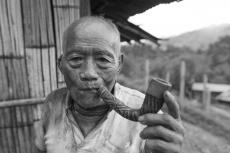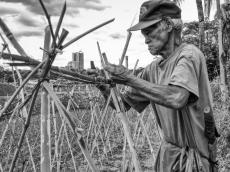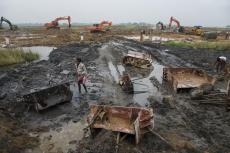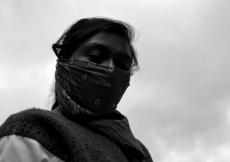Featured exhibits submitted to SDN in September
Imprisoned Rwandans discuss the acts of genocide they committed against Tutsis and moderate Hutus in 1994.
by Darya Ryan/ Russian Federation
We live in a world of many wars. The abundance of conflict in the global news coverage hardly allows the time to reflect and remember the past conflicts and past wars. My project aims at providing perhaps the last chance to get in touch with the past, the lives, and the faces of the last remaining ...
by Philippe Geslin/ France
For the past six years I have gone to Tanzania, between the Rift Valley and Mount Kilimanjaro, in the heart of the savanna, where the Maasai live. A people a thousand times described. People of breeders. Free men. They walk the bush to the rhythm of their herds, to that of the water points. We touch a finger ...
by Ogulcan Arslan/ Turkey
'Unsafe Place' is the story of the unwanted people around us; many people don't look at their faces as they walk down the street, they don't bother engaging in the slightest communication even though they see them. They live in tough conditions in neighborhoods ...
by Yusuke Suzuki/ Iraq
Mosul, Iraq's second largest city, was the scene of a battle for control between Iraqi, Kurdish, and ISIS forces. In June 2014, the leader of Isis, Abu Bakr al-Baghdadi, declared a global caliphate from Mosul. Since October 2016 it had been the site of a military operation to dislodge and defeat...
by Uday Khambadkone/ Colombia
In August 2017, I worked with Fundacion SACIAR, a non-profit food bank based in Medellin, Colombia, which acts as a bridge for food security in the most impoverished areas of Colombia. The armed conflict for the last 50 years has left the majority of the population in need for basic necessities. ...
by Sascha Richter/ Thailand
The Mlabri are one of the smallest ethnic groups living in Thailand, numbering about 400 people. In a period of about twenty years they made a transition from nomadic hunter-gatherer communities living in the forest to a sedentary lifestyle in permanent settlements. They experienced rapid social ...
by Alexandru Salceanu/ Philippines
This series documents life along a small stretch of the Marikina River, Philippines. I followed a few informal scavengers, fishermen and farmers for approximately six months and documented their struggle to survive in a toxic environment. About sixty percent of the pollution comes from human ...
by Yusuke Suzuki/ Jordan
It's been more than six years since the start of the war in Syria. More than 300,000 Syrians have lost their lives in the war, which began with anti-government protests. Since the conflict began in 2011, about 5.5 million people had left the country, and another 6.3 million had been left international...
by Gourab Guha/ India
Taking agricultural land for industrialization has been the dominant narrative of development in the 21st century, especially in the developing countries. In this context, the story of Singur in West Bengal's Hooghly district stands as a striking example in reversing the trend. It all start...
by Erick Tapia/ Mexico
A look at the Zapatista women's and children's way of living after 23 years of fighting for their rights, inspired by the ideas of Emiliano Zapata, which emerged at the end of the twentieth century in the Mexican state of Chiapas.















